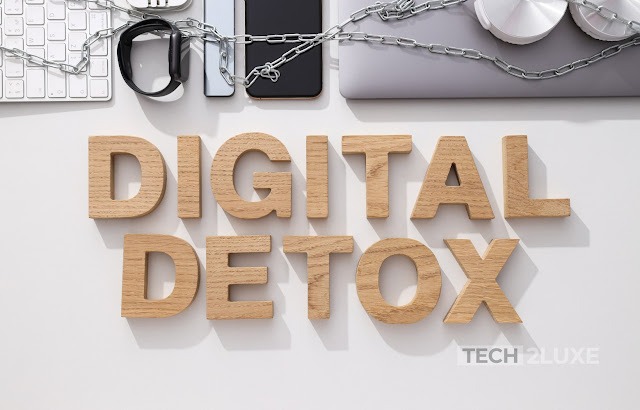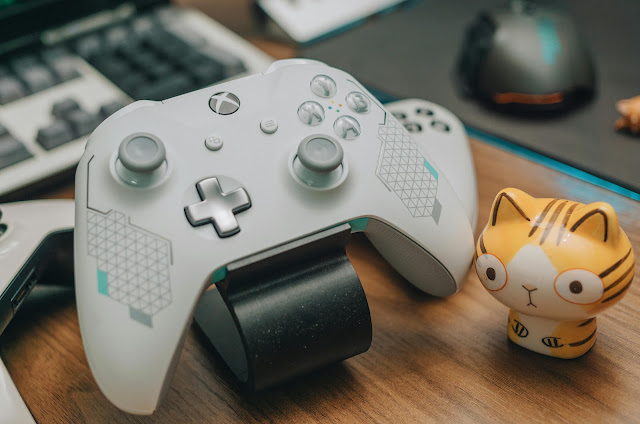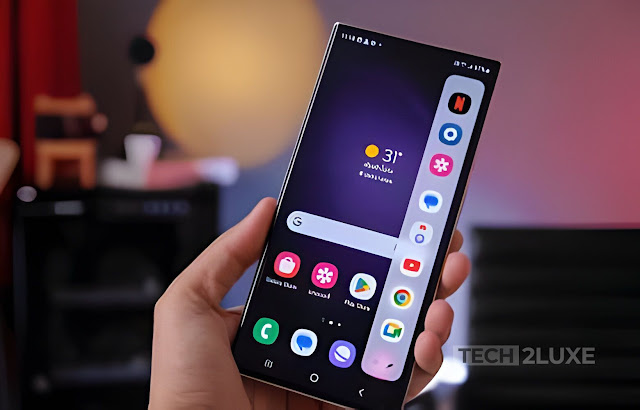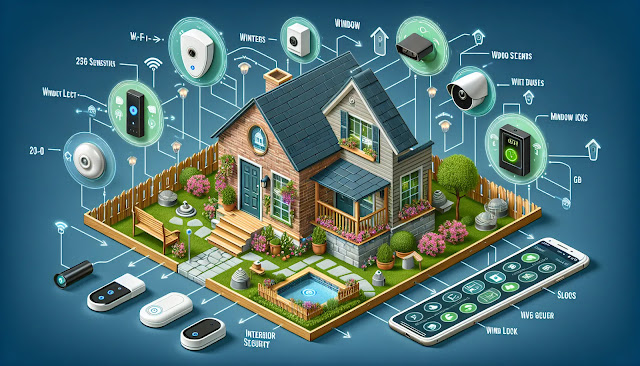The Smartphone Detox: How Unplugging from Technology Can Improve Your Mental Well-being
Impact of social media
Social media has become an integral part of our daily lives, allowing us to connect with friends and family, share experiences, and stay up to date with current events. However, the constant use of smartphones and engagement with social media platforms can have a profound impact on our mental well-being. Research has shown that excessive use of social media can lead to feelings of loneliness, anxiety, depression, and low self-esteem.
One of the main issues with social media is the highlight reel phenomenon. People tend to only showcase the best parts of their lives on social media, leading others to compare their own lives unfavorably. This can create feelings of inadequacy and contribute to a negative mindset. Additionally, social media can be a breeding ground for cyberbullying, which can have serious consequences on an individual's mental health.
To combat the negative effects of social media, it is important to be mindful of our usage and take regular breaks from technology. This is known as a digital detox, which involves temporarily disconnecting from our smartphones and social media platforms to prioritize our mental well-being.
Improving mental health
Taking a break from technology and engaging in a smartphone detox can have numerous benefits for our mental health. By unplugging from social media, we give ourselves the opportunity to focus on what truly matters – our personal well-being and relationships.
When we constantly immerse ourselves in the digital world, we may neglect important aspects of our lives such as self-care, physical activity, and face-to-face interactions. By detoxing from our smartphones, we can create space for activities that nourish our mental health, such as practicing mindfulness, engaging in hobbies, and spending quality time with loved ones.
Research has also shown that productivity and focus can improve when we limit our exposure to technology. Constant notifications and distractions from social media can hinder our ability to concentrate and complete tasks efficiently. By taking a break from technology, we can reclaim our focus and increase productivity in various areas of our lives.
Technology and mental health
While technology has undoubtedly brought numerous advancements and conveniences to our lives, it is important to recognize the potential negative impact it can have on our mental health. The constant connectivity and reliance on smartphones and social media can contribute to feelings of stress, anxiety, and even addiction.
Excessive use of technology can disrupt our sleep patterns, as the blue light emitted by screens can interfere with the production of melatonin, the hormone responsible for regulating sleep. Lack of quality sleep can have a detrimental effect on our mental health, leading to mood swings, irritability, and decreased cognitive functioning.
Moreover, the constant exposure to filtered and edited images on social media can create unrealistic expectations and contribute to body image issues. This can negatively affect individuals' self-esteem and trigger feelings of insecurity.
Mental health and technology
The relationship between mental health and technology is complex. While excessive use of technology and social media can have negative effects, there are also numerous ways in which technology can be utilized to improve mental well-being.
Mental health apps, for example, have become increasingly popular in recent years. These apps offer various tools and resources to promote mindfulness, meditation, and overall mental wellness. They can assist individuals in developing healthy habits, managing stress, and improving sleep patterns.
Furthermore, technology has made therapy more accessible through online platforms. Individuals who may have difficulty accessing traditional in-person therapy can now seek professional help through video calls or messaging services. This has proven to be particularly beneficial during times of crisis or when in-person sessions are not feasible.
Despite the positive aspects of technology on mental health, it is still important to strike a balance and ensure that we are not overly reliant on screens for our well-being. Taking breaks from technology and engaging in offline activities is crucial for maintaining a healthy relationship with both our mental health and the digital world.
Digital detox benefits
The benefits of a digital detox, or unplugging from technology, are vast and encompass various aspects of our lives. Here are some of the key benefits you can expect from a smartphone detox:
- Improved mental well-being: Taking a break from social media can alleviate feelings of anxiety, depression, and loneliness, while also improving overall self-esteem and self-worth.
- Enhanced focus and productivity: Disconnecting from constant notifications and distractions allows you to regain focus and be more productive in various areas of your life.
- Better sleep quality: Reduced exposure to screens before bedtime can improve sleep patterns, leading to increased energy levels and better overall mental health.
- Increased mindfulness: A digital detox provides an opportunity to be fully present in the moment and engage in activities that promote mindfulness, such as meditation and practicing gratitude.
- Stronger relationships: By unplugging from technology, you can prioritize face-to-face interactions, strengthen relationships, and deepen meaningful connections with loved ones.
Digital detox tips
Embarking on a digital detox can seem overwhelming, especially if you're used to constantly being connected to your smartphone. However, with some preparation and intention, you can successfully unplug and reap the benefits of a smartphone detox. Here are some tips to help you along the way:
- Set clear goals: Determine why you want to engage in a digital detox and what you hope to achieve. This will provide motivation and help you stay focused.
- Start small: If a complete break from technology seems daunting, begin by setting aside specific times each day to be smartphone-free. Gradually increase the duration of your detox as you become more comfortable.
- Create alternative activities: Fill the time you would typically spend on your smartphone with other activities that bring you joy and promote well-being. This could include reading, exercising, spending time outdoors, or pursuing a hobby.
- Establish boundaries: Communicate with friends and family about your digital detox and set clear boundaries regarding when and how you will be available. This will help manage expectations and prevent feelings of FOMO (fear of missing out).
- Utilize Do Not Disturb mode: Take advantage of the features on your smartphone that allow you to limit notifications during specific periods. This will minimize distractions and help you stay focused on offline activities.
- Engage in mindfulness practices: Use your newfound free time to practice mindfulness techniques such as meditation, deep breathing, or journaling. This will enhance self-awareness and promote a sense of calm.
- Reflect on the experience: After completing your digital detox, take some time to reflect on how it has positively impacted your mental well-being. Use this insight to establish a healthier relationship with technology moving forward.
Mindfulness and technology
Mindfulness, the practice of being fully present in the moment, can greatly benefit our mental well-being. However, the constant use of smartphones and technology can hinder our ability to be mindful and fully engage with the present.
Technology often encourages multitasking and a constant need for stimulation, pulling us away from the present moment and promoting a fragmented state of attention. By incorporating mindfulness into our relationship with technology, we can cultivate a healthier and more balanced approach.
One way to practice mindfulness in relation to technology is to take regular smartphone breaks. Set aside designated periods of time where you consciously disconnect from your phone and engage in activities that promote mindfulness and presence. This could include going for a walk in nature, practicing yoga, or simply sitting in silence and observing your surroundings.
Additionally, incorporating mindfulness into your daily smartphone use can help you develop a more intentional and conscious relationship with technology. Before picking up your phone or engaging in social media, take a moment to pause, take a few deep breaths, and set an intention for your interaction. This can help you avoid mindless scrolling and instead use technology in a way that aligns with your values and well-being.
Smartphone Detox
In conclusion, the benefits of a smartphone detox and unplugging from technology are numerous. By taking regular breaks from social media and smartphones, we can improve our mental well-being, enhance our focus and productivity, and cultivate healthier relationships.
While technology plays a significant role in our lives, it is essential to strike a balance and be mindful of its potential impact on our mental health. Incorporating mindfulness practices and engaging in activities that promote well-being can help us create a healthier relationship with technology and ultimately improve our overall mental well-being.
Remember, you have the power to prioritize your mental health and find a balance between the digital world and the present moment. Take the first step towards a smartphone detox and discover the transformative effects it can have on your mental well-being.






